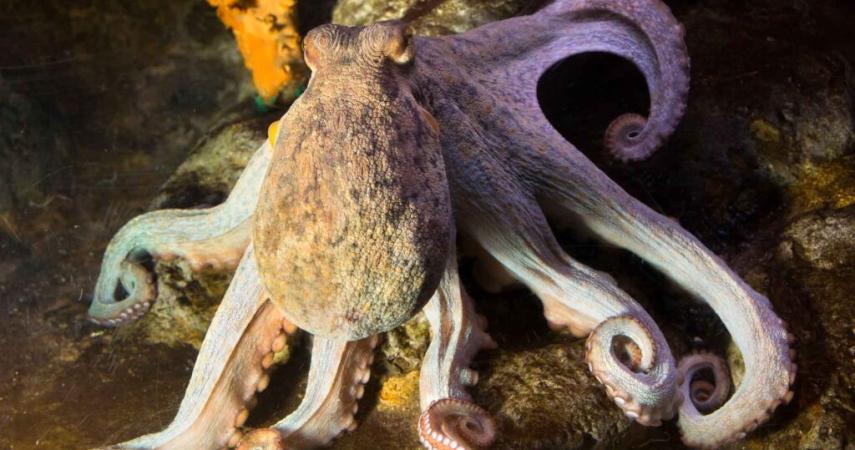Octopuses challenge the paradigm: their stress response differs from vertebrate models
- The finding, published in the American Journal of Physiology, results from a collaboration led by the IIM-CSIC.
- The common octopus lacks vertebrate-like corticosteroids such as cortisol, with potential implications for aquaculture and animal welfare.

Santiago de Compostela, 21st May 2025.
The Spanish Research Council (CSIC), through its Institute of Marine Research (IIM-CSIC), has confirmed that the common octopus (Octopus vulgaris) does not produce corticosteroids typically linked to stress in vertebrates. This suggests a fundamentally different stress response mechanism and has relevant implications for aquaculture and animal welfare.
The research was conducted by the IIM-CSIC’s Aquatic Biotechnology group, in collaboration with the Centre for Environment, Fisheries and Aquaculture Science (UK), the Pescanova Biomarine Center (Spain), and the Centre for Marine Sciences (Portugal). It was part of projects funded by the Centre for the Development of Industrial Technology (CDTI) and CSIC.
The study explored stress-response mechanisms and potential osmotic regulation in the common octopus. “This species is a promising candidate for aquaculture diversification in Europe. As interest in farming octopus grows, concerns around animal welfare also increase. In vertebrates, cortisol and corticosterone are reliable indicators of stress and wellbeing. We aimed to determine whether octopuses produce these hormones and release them into water under stress, as seen in fish and amphibians,” explains CSIC researcher Josep Rotllant.
“Using advanced liquid chromatography and mass spectrometry techniques, we found that this cephalopod does not produce cortisol, corticosterone, or cortisone—hormones classically associated with stress response and osmotic regulation in vertebrates. Their absence in hemolymph supports the evolutionary hypothesis that octopuses lack a corticosteroid-mediated stress response system,” he adds.
The study also found that, while octopuses had limited capacity to absorb cortisol from water, they showed high absorption of 17β-estradiol (E2), consistent with patterns observed in other mollusks.
“These findings could help explain recent mass octopus die-offs following heavy rain in Galician estuaries, where sudden drops in salinity may compromise their physiological stability. In species that produce cortisol, the hormone supports osmotic adaptation. The lack of this mechanism in octopuses suggests reduced resilience to such environmental stressors,” says Rotllant.
This discovery broadens our understanding of octopus physiology and could inform management practices in aquaculture and conservation under climate change and increasing extreme weather events. It also strengthens the evolutionary argument that octopuses lack vertebrate-like corticosteroid stress pathways.
